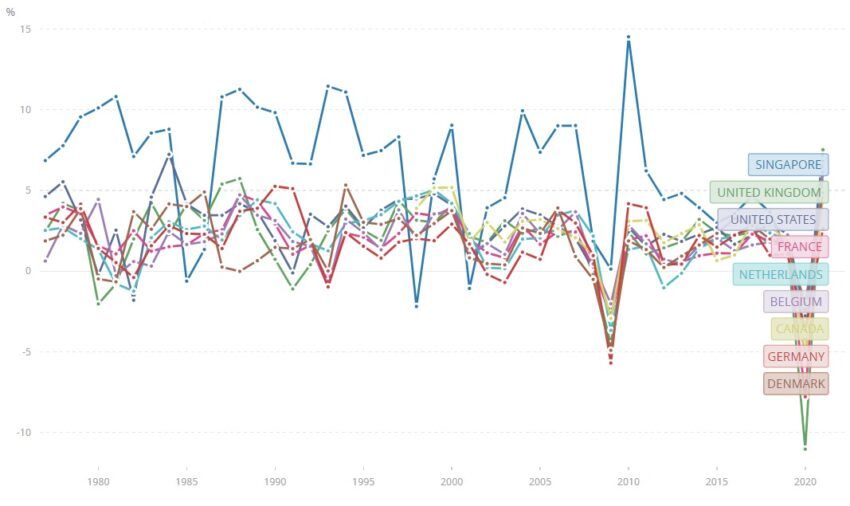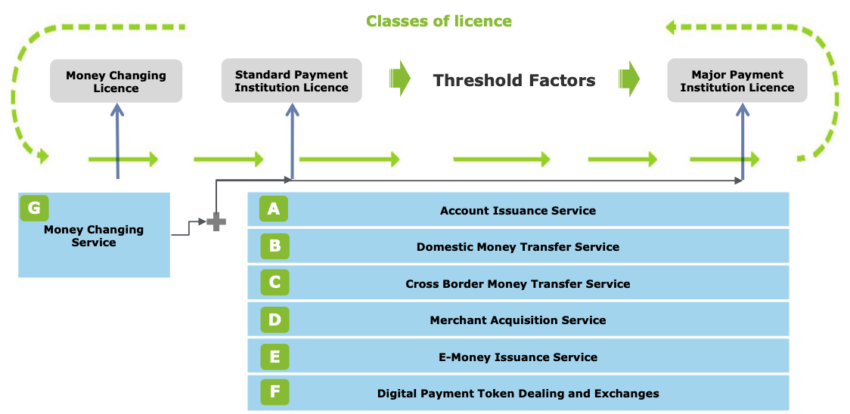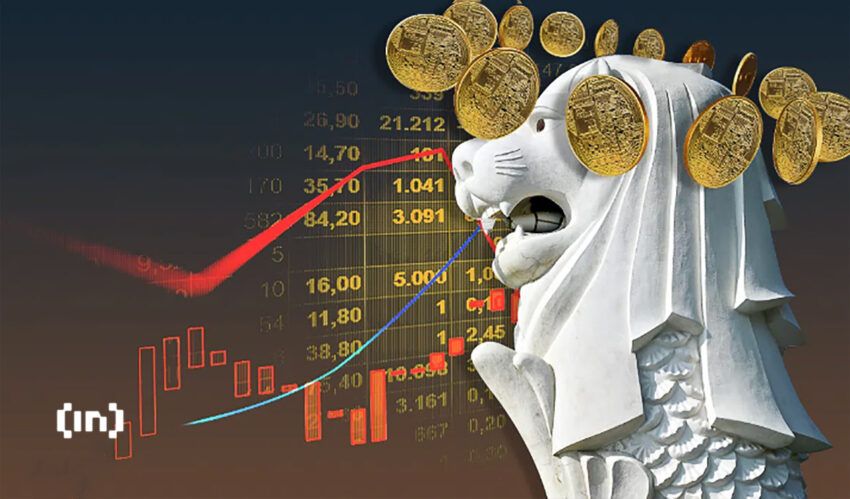From the 1960s to the 1990s, Singapore was one of the four ‘Asian Tigers’ of the global economy. But its approach to crypto is a more complex story.
In recent months, Singapore has been hit by multiple crypto scandals. Do Kwon’s Terraform Labs, whose stablecoin terraUSD imploded last May, was registered in the city-state. The Singaporean crypto hedge fund Three Arrows Capital filed for bankruptcy a few months later, taking down Voyager Digital with it.
A Conservative Take On Crypto
Before that, Singaporean crypto looked feverish. According to KPMG, in 2021, investment into the Singaporean crypto industry increased tenfold compared to the previous year to $1.48 billion. Representing nearly half of the Asia Pacific total for that year.
In the post-war period, Singapore was a superstar in the global economy. Known as one of the four ‘Asian Tigers’ — alongside Hong Kong, South Korea, and Taiwan — it became synonymous with rapid industrialization and high economic growth, providing a model for developing countries to rapidly improve their standard of living and openness to global commerce. Alongside Japan, these Asian nations became synonymous with modernity and dynamism.

At the time, the Asian Tiger growth rates put shame on developed nations in the West. Between 1976 and 2022, Singapore’s GDP Annual Growth Rate averaged 6.26%. Easily beating the most developed economies in North America and northwestern Europe.
Recent analysis shows that in the 21st century, the city-state is proving equally impressive in the global crypto economy.
Singapore Sees Crypto as Inherently Risky
In November of last year, the small city-nation came top of the rankings for cryptocurrency businesses in a report by Coincub. The UK, Cayman Islands, Hong Kong, and the USA followed, in that order. In Q3 2022, Coincub also placed Singapore as the fifth most “crypto-friendly” country. It was only beaten by Germany, Switzerland, Australia, and the UAE. For “crypto activity,” the country ranked thirteenth.
These impressive rankings can seem surprising when judged against recent comments by the central bank’s chairman. Last month in Davos, during the World Economic Forum, the head of The Monetary Authority of Singapore (MAS), and the country’s former Deputy Prime Minister, Tharman Shanmugaratnam, had some frank words for the crypto ecosystem.
I think whether it’s crypto or traditional finance, you have to regulate for things like money laundering — that’s very clear.
But beyond that, if we’re thinking about regulating crypto the same way we regulate banks or insurance companies, I think we have to take a step back and ask a basic philosophical question: does that legitimize something that is inherently, purely speculative, and in fact, slightly crazy?
Shanmugaratnam’s comments are representative of the country’s general attitude to crypto. The technology is seen as worthwhile but within certain contexts. In the past year, its government has focused on its association with money laundering and the financing of terrorism, its risk to general financial instability, and consumer protection. The latter point is particularly understandable and even prescient post-FTX. Like many other countries, Singapore requires crypto firms to apply for licensing to operate.

To paraphrase Lionel Blue, when it comes to crypto, Singapore is like other advanced economies, only more so.
On the whole, the country is vehemently anti-risk and anti-volatility. Although its regulations are similar to those of other developed economies, it differs in other ways. Last October, MAS proposed rules that would set capital and reserve requirements for issuers of stablecoins. The measures would prohibit issuers from engaging in “other activities that introduce additional risks” like lending or staking.
An Attempt to Find a Middle Way
However, the proposals seek to encourage stablecoins as a “credible medium of exchange in the digital asset ecosystem.” Also, from January 2022, any cryptocurrency advertising must be caveated with information that makes it clear that it entails significant financial risk.
Their approach tries to limit malpractice and high-risk behavior while providing avenues for use cases like CBDCs and certain kinds of stablecoins.
“In classic Singapore style, rather than say ‘no you can’t do this,’ they’ll find a way for you to do things in as safe and controlled an environment as possible,” says Chuang Chin Tuan, Product Lead at X Marketplace. He continued:
“My interpretation of crypto regulations in Singapore is that the government intends to protect users from themselves. Admittedly MAS is very strict with their issuance of crypto service provider licenses. If you want true freedom and decentralization, you’d probably hate it, but if you think about how unprepared people are in general about crypto investments, this is a necessary ‘restriction.’ Though, this is actually a middle ground, not a restriction.”
The MAS has also proposed crypto firms check that retail customers have enough financial knowledge to engage with the ecosystem. So, Singapore does not assume consumers, traders, and investors are stupid. But they do assume there is a high possibility that you could be. Or, to be more charitable, they acknowledge that crypto is a complicated ecosystem. People will invest without understanding the risks.
‘Yes’ to Crypto, ‘No’ to Unchecked Speculation
Last year, at the Singapore Fintech Festival, Ravi Menon, the Managing Director of MAS, said:
“If a crypto hub is about experimenting with programmable money, applying digital assets for use cases, or tokenizing financial assets to increase efficiency and reduce risk in financial transactions, yes, we want to be a crypto hub. But if it is about trading and speculating in cryptocurrencies, that is not the kind of crypto hub we want to be.”
Around the world, crypto is in a battle for legitimacy. Singapore isn’t fully convinced that crypto is a productive investment avenue. But in conversations with BeInCrypto, many Singaporean crypto businesses are mostly content with the current regulatory framework.
“Regulations and frameworks implemented by the government are done with the intention of creating a safer digital asset ecosystem in Singapore,” says Raghav Sood, VP of Strategy of Coinhako, a crypto exchange based in Singapore. “As the crypto space is still relatively nascent, it is only natural for regulators to step in and collaborate with industry players to facilitate the growth and legitimacy of the industry and mitigate risks arising in the crypto.”
Disclaimer
Following the Trust Project guidelines, this feature article presents opinions and perspectives from industry experts or individuals. BeInCrypto is dedicated to transparent reporting, but the views expressed in this article do not necessarily reflect those of BeInCrypto or its staff. Readers should verify information independently and consult with a professional before making decisions based on this content. Please note that our Terms and Conditions, Privacy Policy, and Disclaimers have been updated.


